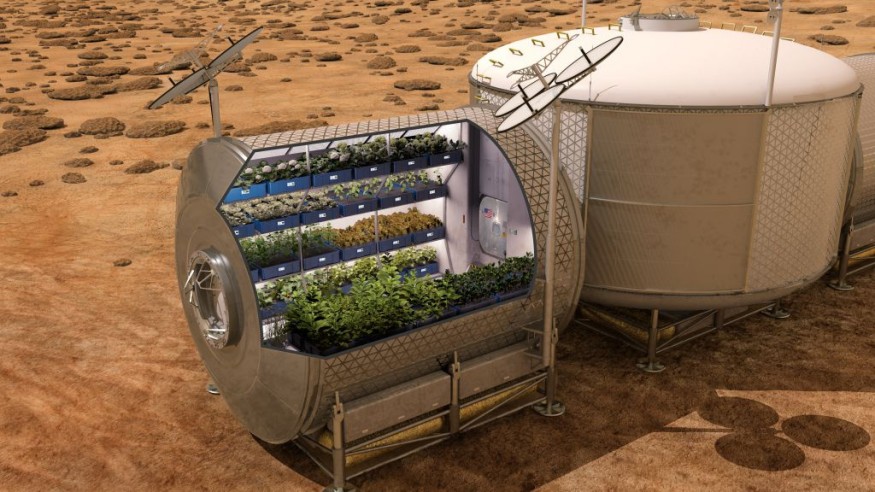
Mars continues to tickle humanity's imagination and curiosity about the world outside of our realm. For astronomers and scientists, Mars is always beaming with possibilities of discovery and exploration. Ever since the beginning of human civilization up to the present day, Mars has always been that planet that is so close yet so far away.
THE MARS PROJECT
Since Mars' topography is similar to that of Earth's, scientists hypothesized that water could have been present on Mars, a sign in which life could be possible. It was recently when Mars Phoenix and the Curiosity rover discovered the presence of iced water and the soil composition of the planet, respectively, that scientists from the National Aeronautics and Space Administration (NASA) concluded that, indeed, the planet contains nutrients essential for plant growth.
However, scientists revealed that even though the Martial soil contains necessary nutrients (carbon, hydrogen, nitrogen, oxygen, phosphorus, sulfur) to grow plants—especially vegetables—it may not sustain certain species. The reason behind it is that Mars' soil is too alkaline, meaning its pH level is greater than seven. Not all vegetables prefer alkaline soil, and the only ones that are possibly happy with alkaline soil are asparagus and beans.
GARDENING AT THE INTERNATIONAL SPACE STATION
Scientists are placing their efforts on understanding Mars' soil components and growing plants in microgravity for future planetary exploration. According to NASA, when their project in rearing vegetables in a situation that is not ideal for plants—in this case, the outer space—come to fruition, it will eventually serve as a sustainable food source for pioneering scientists and explorers who will be a part of the journey to Mars and hopefully other exploration throughout the solar system.
In order to come up with results, astronauts at the International Space Station conducted an experiment which they called Veg-01, which focused on growing lettuce. This experiment aims to "study the in-orbit function and performance of the plant-growth facility and its rooting pillows which contain the seeds." Wisconsin-based Orbital Technologies Corporation develops this Veggie system.
CURIOSITY ROVER BRINGS DATA THAT FUEL ASTRONOMERS CURIOSITY
Ever since it landed on the Red Planet in 2012, the Curiosity rover has provided scientists with data that gave us the general knowledge about the Martian soil. It was the rover that first discovered the presence of nitrates in the soil.
Curiosity was designed to analyze the topography and material of the planet. One of its drills, the rover was able to conclude that water once occurred in the now dry planet. In a presentation hosted by NASA as a part of the International Astronautical Congress regarding the soil studied by Curiosity, chief scientist Jim Green said, "What was really exciting when we first dug into the red soil is that gray material started coming out. This tells us that Mars' history is really exciting."
These data that were captured by Curiosity will determine how it will affect asparagus if planted in those conditions. Scientists are expecting to retrieve the samples collected by Curiosity by 2031.
© 2026 ScienceTimes.com All rights reserved. Do not reproduce without permission. The window to the world of Science Times.












